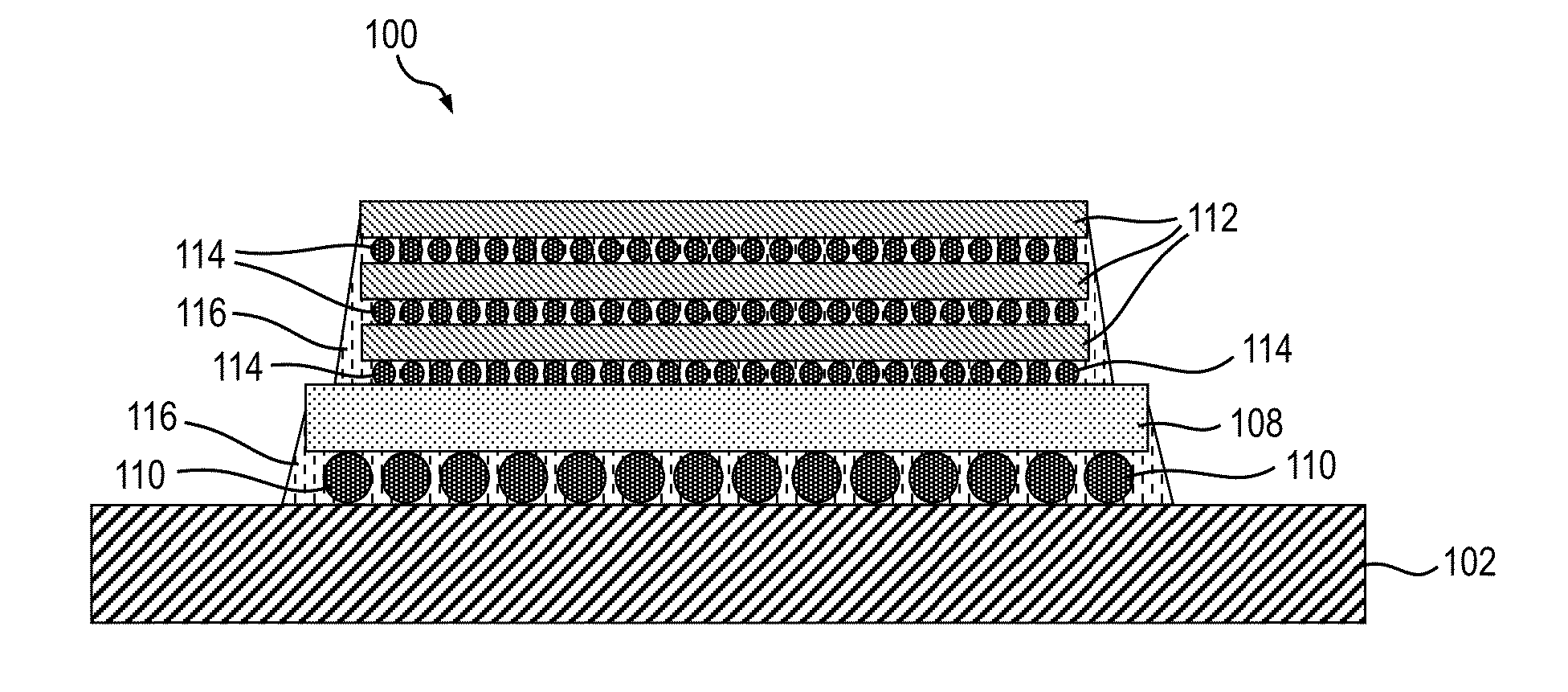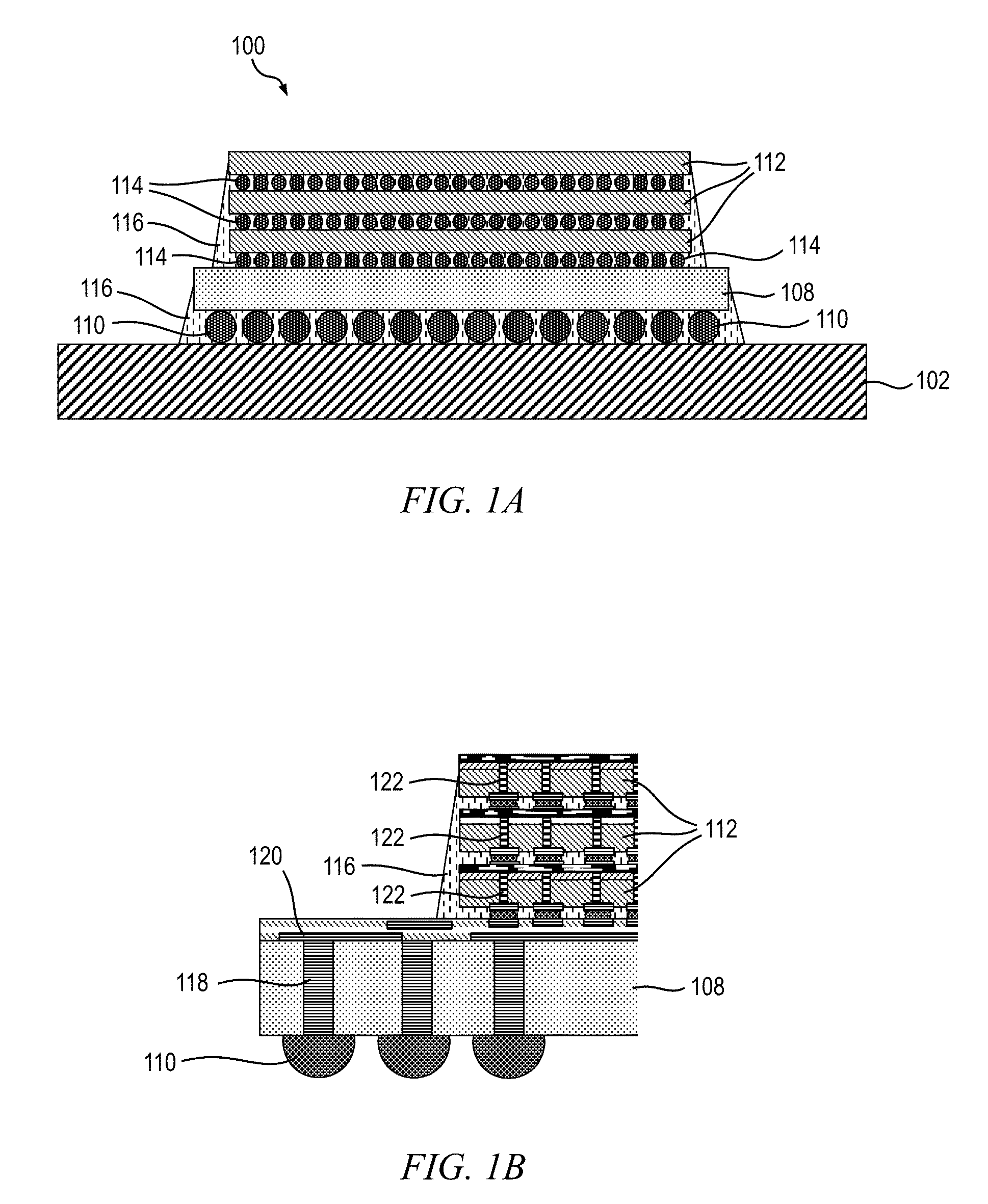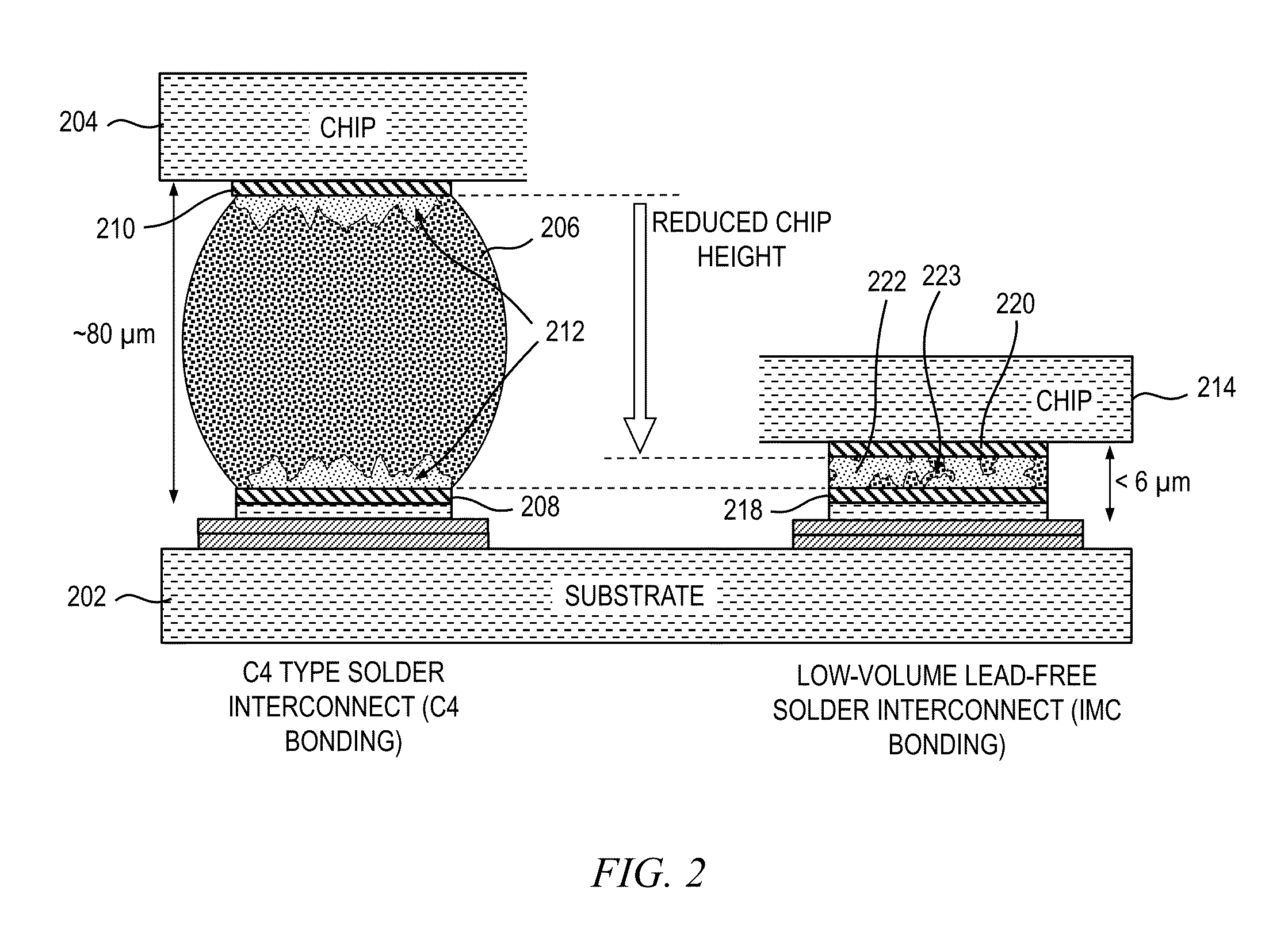Reduced volume interconnect for three-dimensional chip stack
a three-dimensional chip stack and interconnect technology, applied in the field of electric, electronic and computer arts, can solve the problems of limiting the alloys that may be used, increasing the overall package height of the chip stack, and high cost of evaporation or other solder deposition methods, so as to reduce the overall height/size of the interconnect, reduce the height of the stacked package, and reduce the standoff height
- Summary
- Abstract
- Description
- Claims
- Application Information
AI Technical Summary
Benefits of technology
Problems solved by technology
Method used
Image
Examples
Embodiment Construction
[0019]Embodiments of the present invention will be described herein in the context of illustrative interconnect structures for 3D chip stacks and for methods of making same. It is to be appreciated, however, that the invention is not limited to the specific apparatus and / or methods illustratively shown and described herein. Rather, embodiments of the invention are directed to a reduced volume interconnect for decreasing an interconnect height between adjacent silicon layers of a chip stack. Moreover, it will become apparent to those skilled in the art given the teachings herein that numerous modifications can be made to the embodiments shown that are within the scope of the claimed invention. Thus, no limitations with respect to the embodiments shown and described herein are intended or should be inferred.
[0020]As previously stated, 3D chip stacking relies on metallized interconnect structures formed between adjacent silicon layers for providing electrical communication therebetween...
PUM
 Login to View More
Login to View More Abstract
Description
Claims
Application Information
 Login to View More
Login to View More - R&D
- Intellectual Property
- Life Sciences
- Materials
- Tech Scout
- Unparalleled Data Quality
- Higher Quality Content
- 60% Fewer Hallucinations
Browse by: Latest US Patents, China's latest patents, Technical Efficacy Thesaurus, Application Domain, Technology Topic, Popular Technical Reports.
© 2025 PatSnap. All rights reserved.Legal|Privacy policy|Modern Slavery Act Transparency Statement|Sitemap|About US| Contact US: help@patsnap.com



